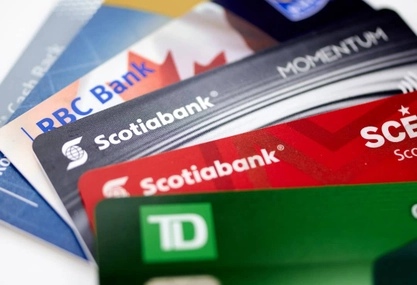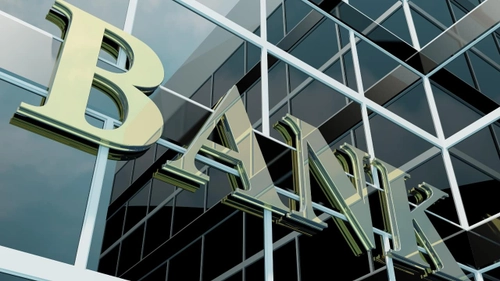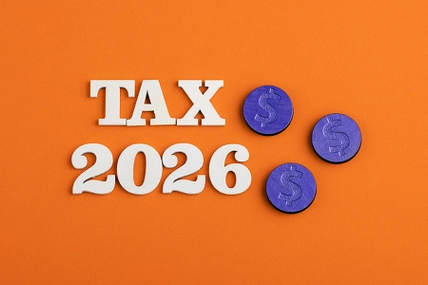Excise tax is applicable to a number of luxury goods, and services. The excise tax rate (tax rate) is relatively high compared with other taxes, even though, the excise tax rate of some goods is 150%.
- 1. What is the excise tax?
- 2. Excise tax-reliable objects
- 2.1. Excise tax-liable goods and services
- 2.2. Excise tax-reliable services
- 3. Non-taxable objects of excise tax
- 4. Excise tax rate
- 5. Decrease tax on battery-powered electric cars from March 01, 2022
- 6. Excise tax calculation
- 7. Who are the excise taxpayers?
- 8. Excise tax refund
- 9. Tax period of excise tax refund
1. What is the excise tax?
Excise tax is the indirect tax imposed on specific goods and services. Excise taxes are commonly levied on luxury goods and services in order to regulate the production, import, and consumption of society. At the same time, excise tax also makes up a relatively small and volatile portion of state and local and, to a lesser extent, federal tax collections.
Accordingly, the excise tax is payable to the consumers because the tax is added to the selling price although the production establishments and importing units submit this tax.
2. Excise tax-reliable objects
2.1. Excise tax-liable goods and services
In accordance with Clause 1, Law on Excise tax 2008 which is amended, and supplemented in 2014, and Article 2, Decree No. 108/2015/ND-CP, the tax-liable objectives include:
- Cigarettes, cigars, and other tobacco preparations used for smoking, inhaling, chewing, sniffing, or keeping in the mouth;
- Liquor;
- Beer;
- Under-24 seat cars, including cars for both passenger and cargo transportation with two or more rows of seats and fixed partitions between passenger, holds and cargo holds;
- Two- and three-wheeled motorcycles of a cylinder capacity of over 125 cm3;
- Aircraft and yachts;
- Gasoline of all kinds.
- Air-conditioners of 90,000 BTU or less;
- Playing cards;
- Votive gilt papers and votive objects.
Note: Excise tax-liable goods are complete commodities, excluding component sets used for assembling these commodities.
2.2. Excise tax-reliable services
In accordance with Clause 2, Article 2, Law on Excise Tax 2008, excise tax-liable goods include:
- Dance halls;
- Massage parlors and karaoke bars;
- Casinos; prize-winning video games, including jackpot and slot games and games on similar machines.
- Betting, including covering betting for sports and entertainment activities and other forms of betting as prescribed by law.
- Golf business, including the sale of membership cards and golf playing tickets; lottery business.
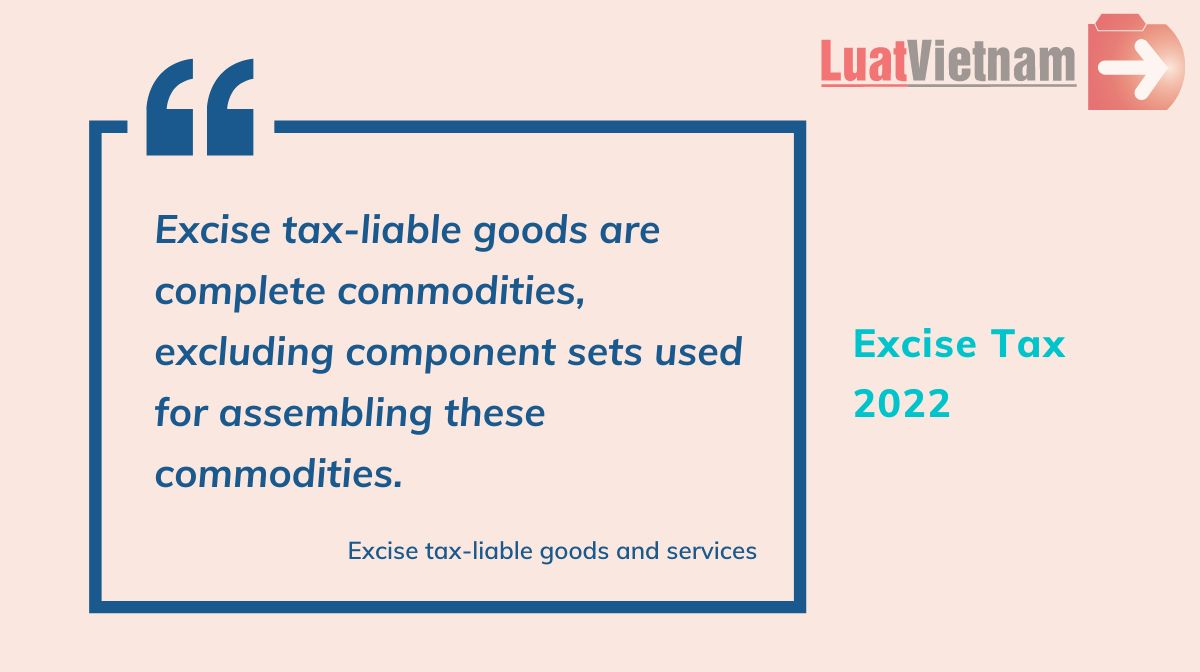
3. Non-taxable objects of excise tax
In accordance with the Law on Excise tax 2008 and Article 3, Decree No. 108/2015/ND-CP, the goods and services prescribed in Clause 1, Article 2, Law on Excise tax are non-taxable objects in the cases as follows:
Goods that are directly exported by producers or processors, or which are sold or entrusted by these producers or processors to other business establishments for export;
- Imported goods, including: Humanitarian aids, non-refundable aid...
See details: Excise tax-liable goods and services
4. Excise tax rate
No. | Taxable goods and services | Tax rate (%) |
1 | Cigarettes, cigars and other tobacco preparations | 75 |
2 | Alcohol of 20o proof or higher | 65 |
3 | Alcohol of under 20o proof | 35 |
4 | Beer | 65 |
5 | Gasoline | 10 |
6 | Gasoline typed E5 | 8 |
7 | Gasoline typed E10 | 7 |
8 | Dance halls; | 40 |
9 | Massage parlors and karaoke bars | 30 |
10 | Casinos and prize-winning electronic games | 35 |
See more: Payable excise tax rate
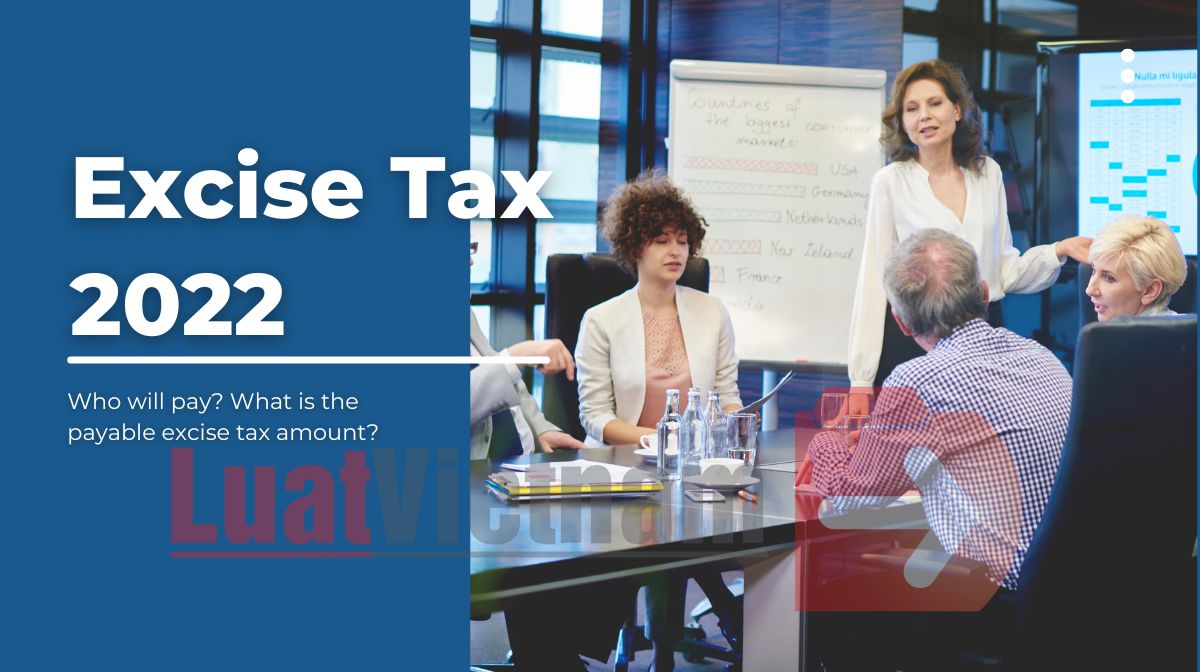
5. Decrease tax on battery-powered electric cars from March 01, 2022
In accordance with the Law on Amending and Supplementing a Number of Articles of the Law on Public Investment, Law on Investment in the Form of Public-Private Partnership, Law on Investment, Housing Law, Bidding Law, Electricity Law, Law on Enterprises, Law on Excise Tax, and Law on Enforcement of Civil Judgments, the National Assembly decides to decrease the tax to increase the usage of using battery-powered electric cars.
Type of car | From March 01, 2022, to February 28, 2027 | From March 01, 2027 |
- Battery-powered electric passenger cars of 9 seats or fewer | The tax rate (%) is decreased from 25% to 3% | The tax rate is 15% |
- Battery-powered electric passenger cars of 10 seats or fewer | The tax rate (%) is decreased from 15% to 2% | The tax rate is 10% |
Battery-powered electric passenger cars of between 16 seats and under 24 seats | The tax rate (%) is decreased from 10% to 1% | The tax rate is 5% |
6. Excise tax calculation
Pursuant to Article 5, Law on Excise tax 2008, excise tax bases include the taxed price of taxable goods or service and the tax rate. The payable excise tax amount is the excise taxed price multiplied by the excise tax rate.
The payable excise tax amount (payable excise tax level) is calculated as follows:
Payable excise tax amount = Excise taxed price x Excise tax rate
Therefore, in order to get the payable excise tax amount (payable excise tax level) must define (1) Excise taxed price and (2) Excise tax rate
(1) Excise taxed price
Pursuant to Clauses 2, 3, 6, 7, 8, 9, Article 4, Decree No. 108/2015/ND-CP and Clauses 1, 2, Decree No. 100/0016/ND-CP, the excise taxed price is defined for goods and services as follows:
* For domestically produced goods or imported goods
The excise taxed price is the selling price of the producer or importer.
In case the selling price of the producer or importer does not match the ordinary market price, the tax agency shall assess tax in accordance with the Tax Administration Law. The excise tax calculation price shall be determined as follows:
Excise taxed price | = | Selling price exclusive of value-added tax | - | Environmental protection tax (if any) |
1 + Excise tax rate | ||||
Within that, the selling price exclusive of value-added tax shall be determined in accordance with the law on value-added tax.
7. Who are the excise taxpayers?
Pursuant to Article 4, Law on Excise tax 2008, excise taxpayers include producers and importers of goods and providers of services that are subject to excise tax.
In the case that exporters that purchase excise tax-liable goods from producers for export and do not export but sell them domestically shall pay excise tax.
It can be seen that taxpayers and tax-reliable objects are not the same (indirect tax).
8. Excise tax refund
Article 7, Circular No. 195/2015/TT-BTC, excise taxpayers are entitled to a tax refund in the cases as follows:
(1) Goods temporarily imported and re-exported, including:
- Imported goods on which excise tax has been paid but which are still stored at the border gate under the customs supervision, then re-exported abroad.
- Imported goods on which excise tax has been paid for delivery or sale to foreign partners via agents in Vietnam; and imported goods for sale to foreign ships on international routes through Vietnam’s ports and Vietnamese ships on international routes as prescribed by the Government;
- Goods temporarily imported for re-export for business purposes, for which paid excise tax on the quantity of re-exported goods shall be refunded;
- Imported goods on which excise tax has been paid but which are re-exported, for which paid excise tax on the quantity of re-exported goods shall be refunded;
- Goods temporarily imported to participate in a fair or an exhibition, or for display or serve other purposes for a limited period of time on which excise tax has been paid, for which the paid tax shall be refunded upon re-export;
- Imported goods on which excise tax has been paid as declared but the actual quantity of imported goods is smaller than the declared quantity; and imported goods on which excise tax has been paid but which are damaged or lost during importation for a plausible reason
- With regard to imported goods the quality or categories of which is or are not consistent with the contract or import permit (due to the fault of the owner of the foreign goods), if a competent agency has inspected, the owner of the foreign goods has certified, and goods are allowed to be imported, the customs office shall inspect and verify the payable excise tax amount. Excessively paid tax shall be refunded and tax arrears shall be fully paid.
If goods are re-exported to the owner of the foreign goods, paid excise tax on the quantity of re-exported goods shall be refunded.
If goods are returned to the owner of the foreign goods within the period in which import duty payment is not required, the customs office shall examine the procedures and not collect excise tax on the quantity of returned goods.
(2) For materials imported for manufacturing or processing goods for export, paid excise tax on the number of materials used for manufacturing or processing goods that have been actually exported shall be refunded.
(3) When making finalization upon a merger, division, splitting, dissolution, bankruptcy, ownership transformation, assignment, sale, contracting, or lease of state enterprises that have paid excise tax excessively, an excise tax refund may be claimed.
(4) Excise tax shall be refunded in the following cases:
- The refund is decided by a competent agency under the law;
- The refund is required under a treaty to which the Socialist Republic of Vietnam is a contracting party;
- Paid excise tax is higher than payable excise tax.
9. Tax period of excise tax refund
Pursuant to Clause 4, Article 8, Decree No. 126/2020/ND-CP, excise taxes are the taxes which subject to monthly, upon arising of tax liability, and tax finalization declaration, in particulars:
- Excise tax, for taxpayers that are engaged in export business, have not yet paid excise tax at the production stage and sell goods domestically instead of export. Excise tax, for business establishments that purchase home-made cars, aircraft or yachts not liable to excise tax but later use them for purposes liable to excise tax.
- Taxes on exports and imports, including: Export duty, import duty, safeguarding duty, anti-dumping duty, countervailing duty, excise tax, environmental protection tax, and value-added tax. For exports and imports not subject to declaration upon arising of tax liability, the Ministry of Finance’s guidance shall apply.
Here are the primary regulations on excise tax.




